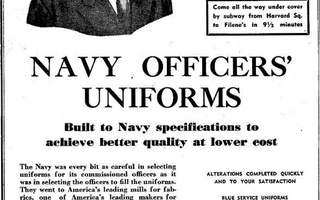
Phillip Kuwert, a senior physician in the department of psychiatry at the Ernst-Moritz-Arndt-University in Germany, spoke as part of a panel discussion yesterday about the sexual violence experienced by German women during the military defeat of Nazi Germany.
Professors, graduate student fellows, and other experts gathered last night for an interdisciplinary discussion of sexual violence in 1945 Berlin.
Harvard Law School doctoral candidate Heidi C. Matthews, who organized and moderated the panel, said the impetus for the discussion came from her visit to Germany the summer of 2009, during which she discovered a resurgence of interest in the matters of World War II among the grandchildren of the victims.
Matthews said she hoped the discussion would bring to light that German women were both perpetrators of “crimes against humanity” as well as victims of crimes—namely rape—near the end of the war.
Experts featured in the panel discussion included Law School professor Janet Halley, Cooper Union professor Atina Grossman, German psychiatrist Philipp Kuwert, and historian Wendy Lower. They covered topics ranging from feminist principles in governance and the long-term effects of rape trauma.
Each approached from their own fields the concept of sexual violence, persecution, and trauma in the context of 1945 Berlin.
“Persecution, when it’s a crime against humanity, must not only be persecuted due to race, ethnicity, or creed, but also gender,” said Halley, who presented on feminist law reform in international law, especially pertaining to “crimes against humanity,” such as rape.
“As an aspiring scholar of international law, I was troubled by the way law makes distinctions with real, final, and lasting judgments,” Matthews said. “Those who were judged as guilty were labeled as only such. The Berlin [1945] example provides a discreet moment of what it means to speak of rape.”
Last night’s discussion began with a screening of Max Färberböck’s “A Woman in Berlin,” which was based on a book of the same title written by an anonymous German woman in the spring of 1945. The film illustrated the sexual abuse endured by German woman during the last few months of World War II, providing background for the ensuing discussion.
“[The film] sheds light on the deep complexities of sexual violence and sexual contact during times of conflict,” said Lisa M. Kelly, a doctoral candidate at the Law School.
Kuwert echoed the idea of retrospection.
“My generation,” said Kuwert, who is a native German, “is the first generation that can finally look at the past and try to understand what happened.”
This article has been revised to reflect the following corrections:
CORRECTIONS: October 3, 2010
An earlier version of the Oct. 1 news article "Panel Explores Sexual Violence in 1945 Berlin" incorrectly stated that panel moderator Heidi C. Matthews visited Germany this past summer. In fact, she visited the summer of 2009.
The same article's title incorrectly stated that the panel discussed sexual violence in "Nazi Germany." In fact, the panel focused on sexual violence perpetrated by allied forces at the end of the war.
Read more in News
‘Spare Change’ To Expand to WorcesterRecommended Articles
-
 Harvard in 1945
Harvard in 1945 -
Border CrossingsJet lag seemed a stronger force than the alarm that had consistently failed to wake me up in time for my 9:00 a.m. lectures. So I got up, got dressed, and decided to walk to Germany.
-
Oktoberfest Tradition Continues This SundayCountry music, hot air balloon rides, and Thomas the Tank Engine may not sound like a typical Oktoberfest, but Harvard Square has redefined the German tradition with its own annual celebration, taking place this Sunday.
-
 History's One and Only Crimson Dance Team
History's One and Only Crimson Dance Team -
What's in a Skill?Germany's pervasive structural incorporation of vocational training into the education system allows graduates with different skills and expertise to be respected in society regardless of the perceived “prestige” of their chosen professions.
-
The Word: FallWhen I first see my grandfather outside of the Würzburg train station, I don’t recognize him.













